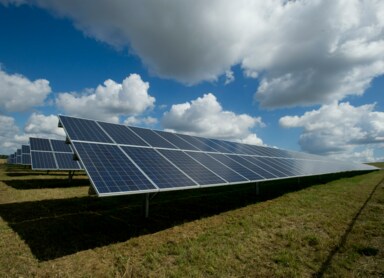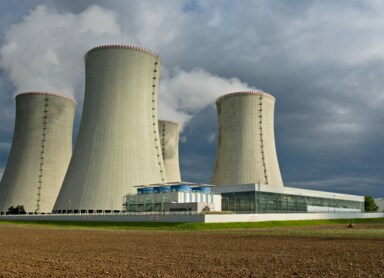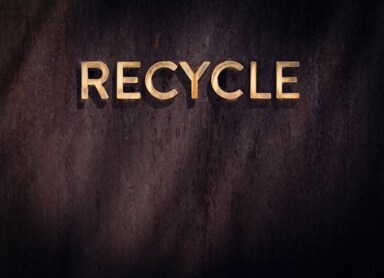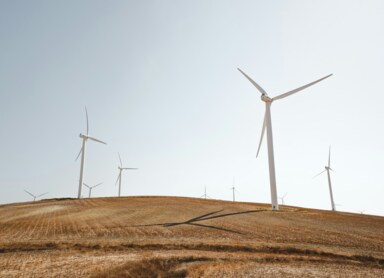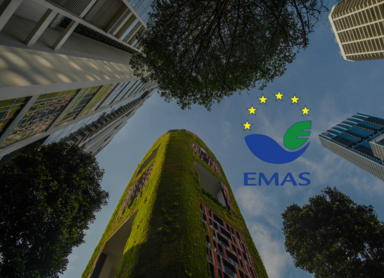Renewable energy
Three-phase electricity – is it a more eco-friendly solution for households and businesses?
Access to electricity is necessary to use any device, whether it’s a kettle or an industrial machine. At the stage of designing a building’s electrical installation, it becomes necessary to choose between a single-phase and a three-phase system. How do they differ from each other? And is three-phase electricity more eco-friendly?
Solar Energy – how does It work and why Is it worth investing in?
Solar energy is one of the fastest-growing areas of renewable energy. It is inexpensive, maintenance-free, and at the same time generates real profits while requiring relatively small financial outlays. Its importance for businesses, as well as for individual consumers, is steadily increasing, as the numbers clearly show. In 2023, the total global capacity of photovoltaic installations exceeded 1,400 GW. Read on to find out why investing in solar energy is worthwhile!
Gravitational energy storage – how it works and is it the future of electricity storage?
As the world struggles with an increasingly severe environmental crisis, the demand for Renewable Energy Sources is rising dramatically. Wind and tidal energy are strongly limited by location, while solar energy seems widely available and inexhaustible, but its efficiency suffers due to the day–night cycle. One of the modern innovations addressing this challenge is gravitational energy storage. How does this solution work?
Geothermal energy – how it works and whether it can be an important source of energy in the future?
Among renewable energy sources, geothermal energy is usually not mentioned among the top options. For this reason, most investors don’t even consider using it. And that’s a shame, because the geochemical processes occurring inside the Earth generate truly large amounts of heat that—if properly harnessed—can be used in everyday operations. But what exactly is geothermal energy, and how can it be exploited?
Solar tax – who does it apply to and what are the current regulations?
Generating electricity from solar radiation has for years been an effective way to save money, allowing a significant reduction in electricity bills. However, reports on the internet suggest that, in search of additional revenue, the tax authorities plan to reach into taxpayers’ pockets by introducing a solar tax. How is this new fiscal charge supposed to work? Who does it apply to, and is there really anything to worry about?
How does a nuclear power plant work? We explain
Nuclear energy is currently regarded as the future of developing societies. Extremely efficient and environmentally safe, it allows for the generation of a tremendous amount of electric power, albeit at a fairly high cost. Learn about the principles of how a nuclear power plant works and find out what plans Poland has in this regard.
What is the deposit return system and from when will it be in force in Poland
The deposit return system is a solution introduced in response to the provisions of the Single-Use Plastics Directive, also known as the plastics directive. Its aim is to increase the level of recycling and to reduce the amount of waste ending up in the environment. In Poland, it will come into force in October 2025, although it was originally planned to be launched much earlier. What is the deposit return system, and how has it worked in other European countries?
Photovoltaics – Is It Worth It? Costs, Benefits, and Current Regulations
As of July 1, 2024, new prosumers are now settled under the net-billing system. Unlike the previously used net-metering, where surplus electricity could essentially be taken back on a 1:1 basis with a small commission deducted, the new system is based on specific monetary values.
Is solar-generated electricity still just as profitable under these new rules?
How does the ozone hole form and what does it cause? How can this phenomenon be prevented?
Our planet is surrounded by an invisible ozone layer, which spreads like a bubble at an altitude of several dozen kilometers. Its existence was discovered surprisingly late, only in the 1960s. It was not immediately established that the structure of the ozone hole is not constant and can be damaged. Such a loss is referred to as the ozone hole. What is the ozone hole and can it be prevented
Wind turbines — how do they work and what should you know about them?
Renewable energy sources are not limited to photovoltaics or hydroelectric power. In areas with strong winds, it is also possible to harness their potential to generate electricity. Here, we take a closer look at wind turbines—both large-scale industrial installations and smaller household solutions. How do they work, and is wind power a cost-effective source of energy?
Energy efficiency of heat pumps - what is worth knowing?
Heat pumps are, next to photovoltaics, one of the most popular technologies using renewable energy sources. By transferring thermal energy from the so-called “bottom source” - the ground, air or a body of water - it is possible to heat a building at a much lower cost than using classic CO. However, the energy efficiency of a heat pump can vary depending on a whole range of factors. What affects the efficiency of a heat pump and can this parameter be improved?
EMAS – A Complete Guide to Environmental Certification
Companies and government agencies are increasingly requiring their partners to demonstrate proper care for the environment. Entrepreneurs who want to show they are consciously and responsibly taking the green path—and avoid accusations of greenwashing—may choose to implement the EMAS certification. But what exactly is EMAS and what benefits does it offer?

